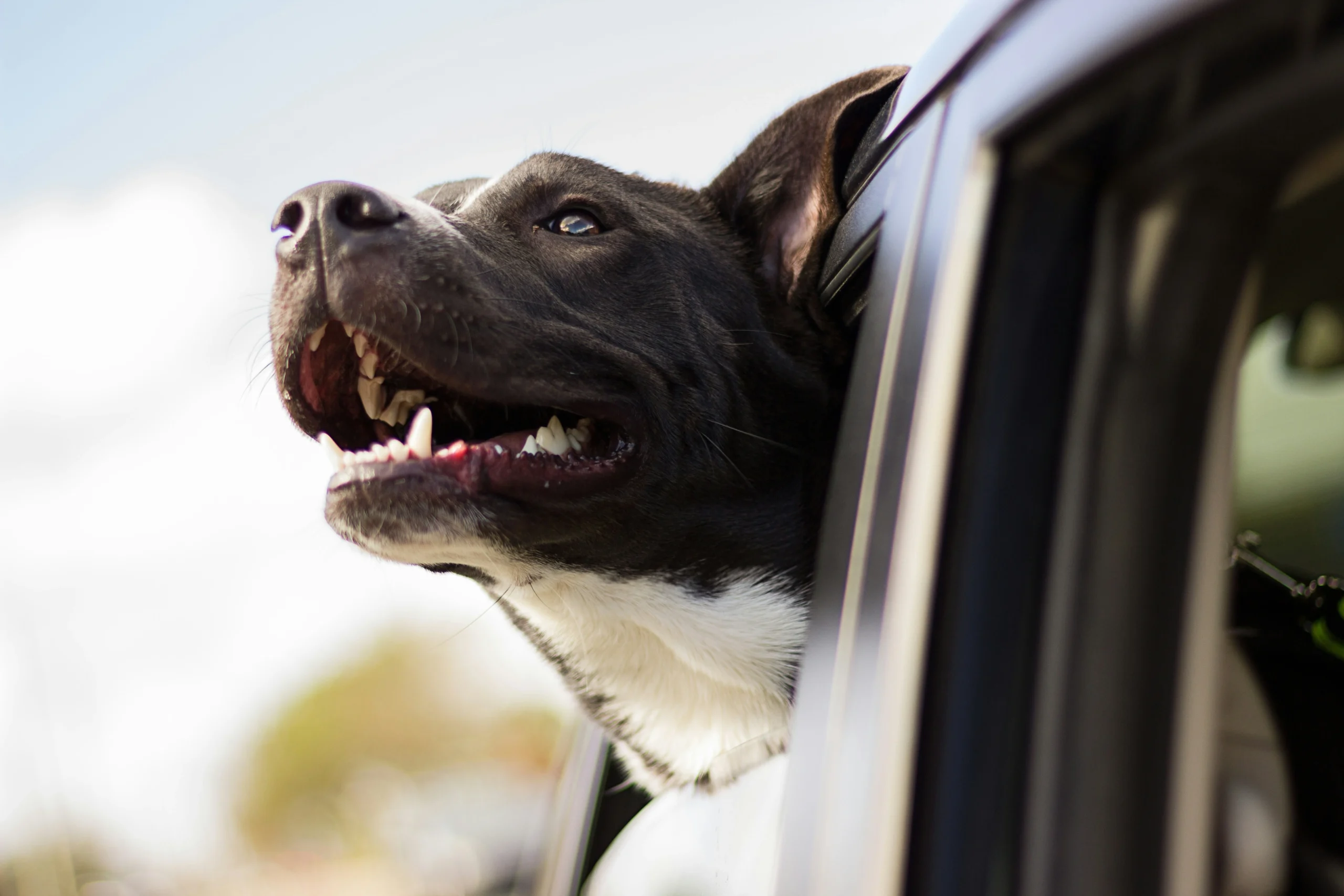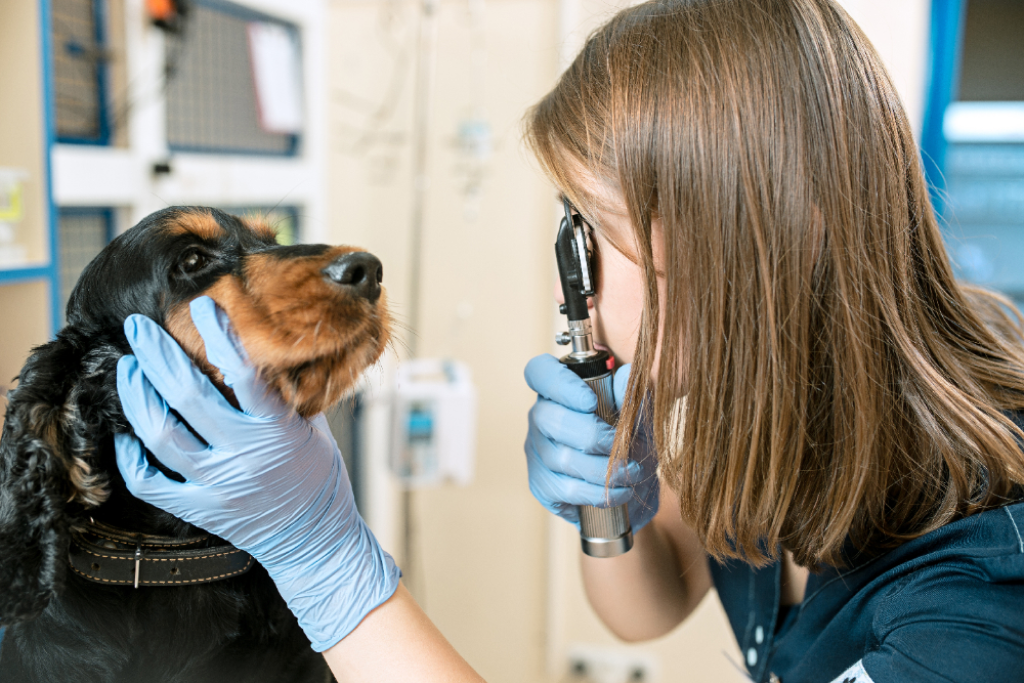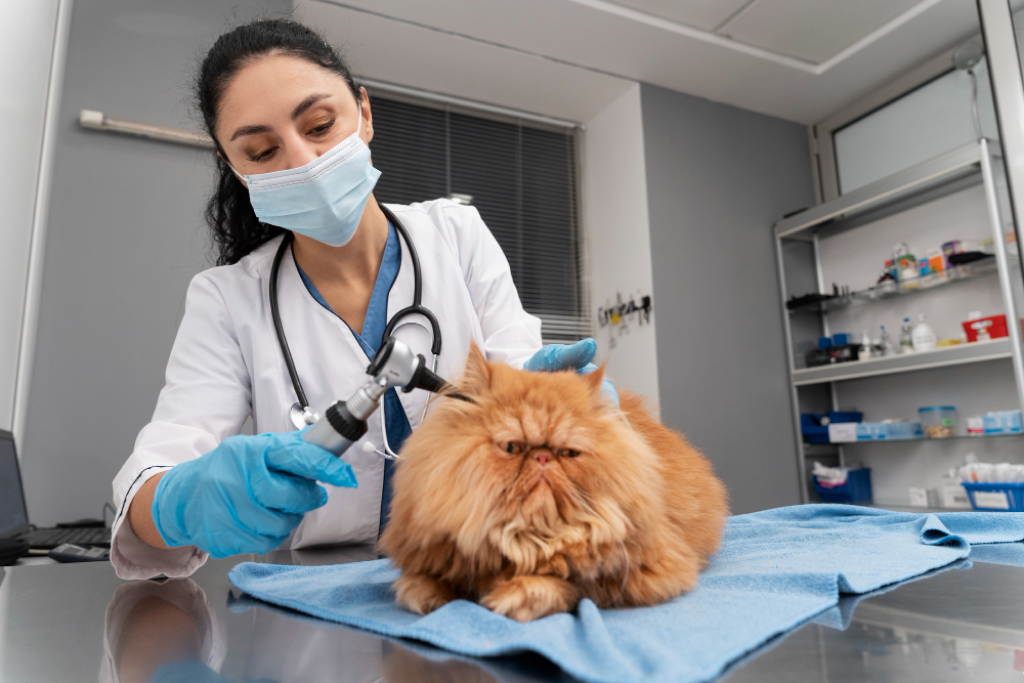As the nights draw in, fireworks and noise phobias are a common concern, causing a lot of stress to owners and their pets alike – the evenings get shorter and fireworks seemingly start earlier every year!
It is estimated that between 45% and 70% of dogs and cats are afraid of fireworks, and of these, perhaps one in 10 requires veterinary treatment. To a great extent, however, it is a treatable problem and we have a few pointers here to get you started. Should your pet be severely affected, do seek help from us and/or a behaviourist.
Signs that might suggest your pet is struggling to cope with loud noises are:
- trembling or shaking
- clinging to owners
- barking excessively
- cowering or hiding behind furniture
- pacing and panting
- refusing food
- soiling the house and trying to run away.
This unfortunately reinforces the idea that pets should be afraid
Many owners will try to reassure their pets as they do their loved ones – with stroking/physical contact or talking to them. This unfortunately reinforces the idea that pets should be afraid and it is preferable to ignore fearful behaviour, whilst remembering that animals will be more relaxed with a familiar person present.
Dogs are likely to pick up on any anxiety their owners are feeling so staying calm and relaxed for them is paramount! Their usual routine may benefit from slight changes to ensure they are not taken for walks after dark when fireworks may be let off. In addition, try to feed and settle them for the evening before any whizzes or bangs begin and keep cats in the house for the night.
Make sure your house and garden are secure in case your pet is suddenly startled and tries to run away – microchipping and a dog tag are essential. Keep pets indoors, close the curtains and play music or turn the television on to disguise the noises, consider making a den of old, familiar blankets to enable your pet to hide away and settle. Similarly, if your cat is happier hidden under the dresser, leave them there as long as they need.
 Adaptil (DAP) – Dog Appeasing Pheromone is a synthetic version of a chemical produced by the mother after birth and can naturally calm older dogs. It is best to place a diffuser near your dog’s favourite spot and turn it on several days before the firework period begins. There is a CD that can be used in conjunction with Adaptil to desensitise your dog to typical firework noises. It usually takes several weeks to see a marked improvement and so is best carried out well in advance – contact Knutsford Vets if you would like to know more.
Adaptil (DAP) – Dog Appeasing Pheromone is a synthetic version of a chemical produced by the mother after birth and can naturally calm older dogs. It is best to place a diffuser near your dog’s favourite spot and turn it on several days before the firework period begins. There is a CD that can be used in conjunction with Adaptil to desensitise your dog to typical firework noises. It usually takes several weeks to see a marked improvement and so is best carried out well in advance – contact Knutsford Vets if you would like to know more.
For cats, Feliway performs a similar function, although there is not as much information as to whether desensitisation to loud noises works. There are herbal remedies available for both dogs and cats which are worth trying to see what your pet responds to best.
If your pet becomes severely stressed, then do approach us to discuss sedatives but beware that all drugs have potential side effects. Especially in older pets, blood testing to check kidney and liver function is preferable before starting medication, especially as fireworks can be a concern for several weeks.
If you have any queries or would like to know more information about any of the products mentioned, or any veterinary treatments available, please do contact Knutsford Vets on 01565 337 999 or via our website





